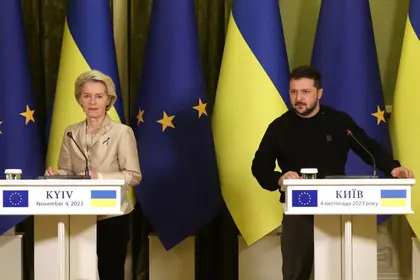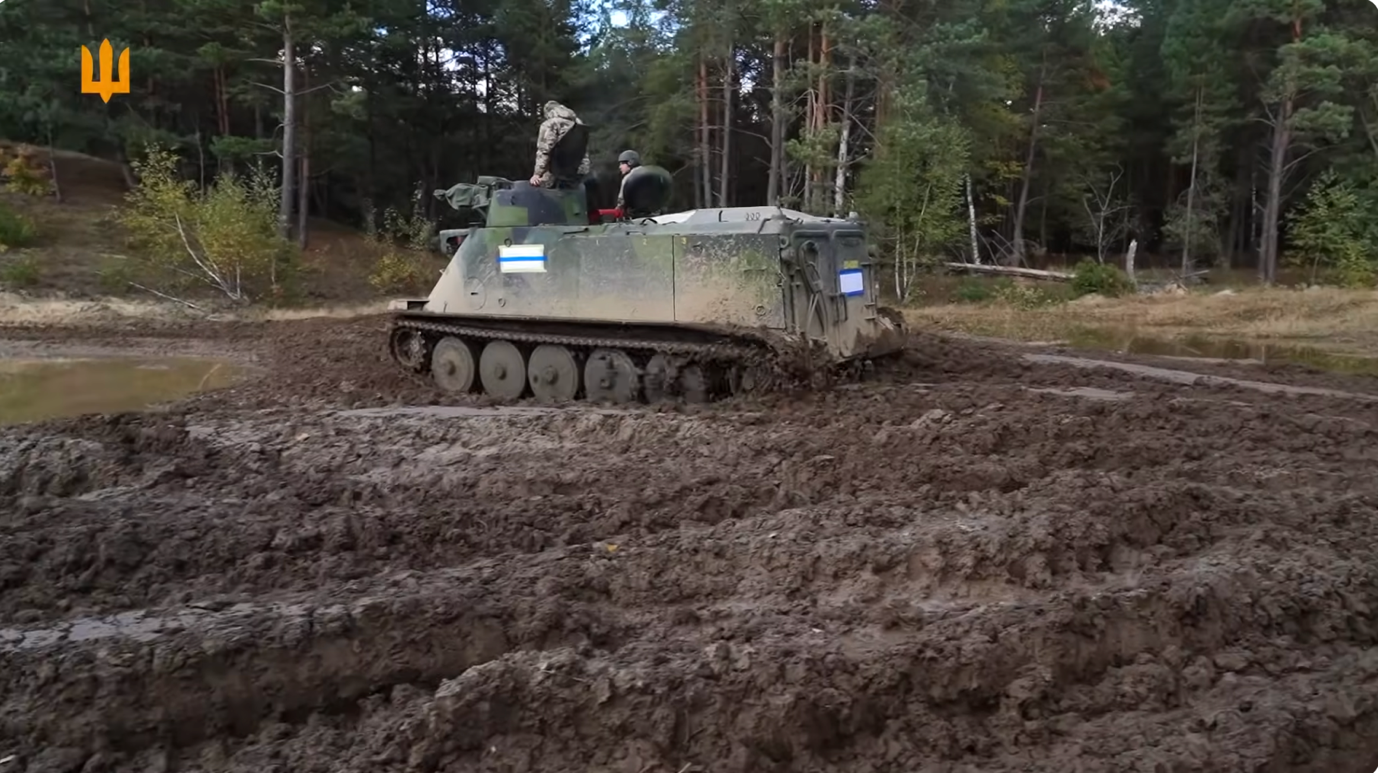“This is a historical opportunity,” Roberta Matsola, the head of the European Parliament said to Ukrainian journalists in a closed meeting hours before the EU Council made its historic announcement. “Politically, what we can send today to Ukraine and Moldova is clarity.”
Ukraine and Moldova were invited to open accession talks while Georgia was given candidate status. Bosnia and Herzegovina was also promised accession talks – once EU demands are met.
JOIN US ON TELEGRAM
Follow our coverage of the war on the @Kyivpost_official.
The decision, made by the EU Council late in the night on Dec. 14, has been labeled as groundbreaking by political scientists – who highlight that it would have been unthinkable only two years ago. While not all the EU governments were on board with the decision on Ukraine’s accession, the majority managed to overcome the opposition of the few countries – an action that in itself set another historical precedent for the EU’s decision-making process.
“We also need a decision on financial support for Ukraine, but it has to be taken not only from the political perspective, but from the moral one,” Matsola said, “Otherwise, we’d be giving a direct victory to Putin.”
“I trust Zelensky and other [leaders] to be good negotiators,” she continued, “There are many people inside the negotiating room who are very good at persuasion. Each country will take something from these negotiators back home.”

Zelensky Hails Sandu's Election Win in Moldova, Urges 'United Europe'
Matsola’s prediction turned out to be true – although only partially. While the EU showed its openness for potential new members despite internal opposition, the financial aid for Ukraine remains blocked by Hungary. Even after receiving 11 billion Euros from the EU hours before voting Orban’s government did not change its stance.
Hungarian opposition is one of the many challenges that will complicate Ukraine’s path toward the EU membership. Yet, the fact that the EU was able to reach a consensus on this highly political decision shows the changing foreign policy for the block – and its desire to expand its influence to the regions it previously overlooked.
Accession filled with problems
“The December decision means an opening of a long process toward accession,” says Anton Shekhovtsov, a Ukrainian political scientist and a Chair at the Centre for Democratic Integrity.
“The talks will begin in the spring,” he continues, “The process will require Ukraine to harmonize its laws with those of the EU. This includes 35 different legal aspects, and Ukraine will need a consensus for each with all the member states.”
The legal harmonization will take time – both on the Ukrainian side and that of the EU. The Ukrainian parliament and relevant institutions will not only need to adjust the existing laws to meet European requirements – but also resolve previously-unresolved legal issues with its neighbors. For example, Hungary has been criticizing a Ukrainian law on national minorities and languages, claiming it violated the rights of the Hungarian minority in Ukraine. It also provided its suggestions for the Ukrainian government – which were rejected by the Ukrainian side as they considered it undermined national unity.
“We will continue having these problems with Hungary,” Shekhovtsov says, “In addition, there may be more problems with Austria, if the government is led by the right-wing parties after the elections in the fall of 2024. And obviously, the war remains the biggest problem.”
The ongoing invasion is already preventing Ukraine from running elections; and it is likely to create more challenges in legislative areas. Implementing legal changes is also going to be very hard under current conditions – especially given that parts of Ukraine remain under occupation.
Inner transformations
Despite the issues, the decision on Ukraine’s accession showed major changes inside the EU – such as the block’s changing priorities and the push for inner transformations.
“The decision on Ukraine was made without unanimous voting, with Hungary being pushed aside,” says Koert Debeuf, a professor at Brussels School of Governance, and a consultant on EU enlargement. “The fact that they managed to do this is unprecedented. It is a big deal.”
According to Debeuf, most of the EU countries are in favor of changing the way the block makes decisions – such as moving away from the requirement for unanimous voting and switching to majority decision-making. Currently, all important decisions by the EU need to be supported by all member states – so issues regarding foreign policy, international sanctions, or accession of new countries – cannot be met if there is internal opposition. This has created tensions within the block – because a veto from one member state can prevent the rest of the EU countries from moving forward with particular decisions. This was the case with Hungary blocking various sanctions packages against Russia or aid to Ukraine.
“What the EU countries did with Ukraine’s voting was a signal to move to the majority model,” Debeuf continues, “This is absolutely necessary. The world is moving very fast, so if you let one small country prevent the EU from moving forward, the EU will be lost.”
Different EU leaders are looking into ways that the veto system could be changed – although it’s hard to predict how. Altering this procedure will require many legal hurdles to be overcome in all of the EU countries because it will require changes to constitutions and treaties.
“The last time something this complex was done was two decades ago with the Lisbon Treaty,” Debeuf explains, “But this is necessary and has to be implemented.”
Accession as an outreach tool
The accession does not only signal transformation inside the EU – but profound changes in the block’s foreign policy.
“The decision on Ukraine’s accession would have been impossible two years ago,” says Debeuf, “The full-scale invasion transformed the entire European thinking; it is changing fundamentally and dramatically.”
Now, the EU is using accession as a means to increase its influence on the regions which are not yet members of the block – as well as using trade and diplomacy to extend its outreach to countries further away as a means of counteracting Russia’s influence.
“The strategic importance of the regions that were seen as outside of Europe’s scope have now become completely in the European scope,” Debeuf explains, “This includes the Black Sea region, North Africa, and maybe even Central Asia. The more war is going to take, the more unpredictable the EU’s foreign policy may become.
“The strategy is shifting, and it’s good that the EU is changing its way of looking at the world,” the expert concludes, “The EU realizes it needs to do something about the regions which are important for it and for the world.”
You can also highlight the text and press Ctrl + Enter






